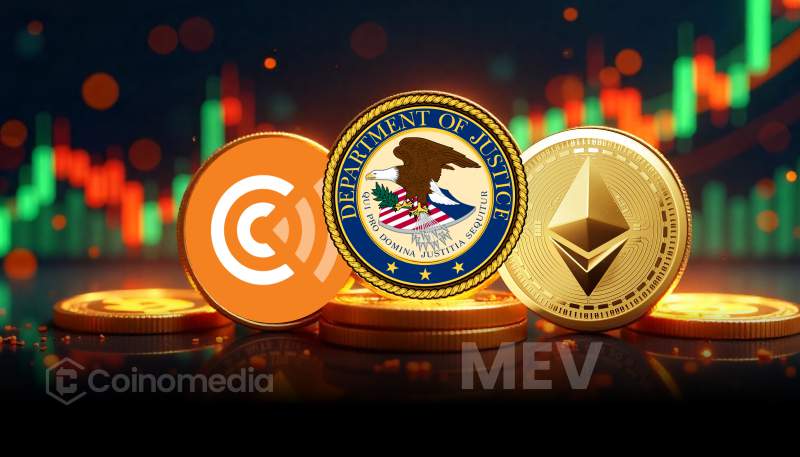Coin Center Challenges DOJ’s Ethereum MEV Theory
Coin Center disputes DOJ's "honest validation" claim in $25M Ethereum MEV case.

- Coin Center filed a legal brief in the MEV exploit case.
- The brief disputes the DOJ’s “honest validation” theory.
- The case involves a controversial $25M Ethereum MEV transaction.
Coin Center, a leading crypto policy advocacy group, has entered the legal fray in the high-profile Ethereum MEV case involving a $25 million exploit. The organization filed an amicus brief opposing the U.S. Department of Justice’s (DOJ) novel legal argument, which they say could threaten the foundational mechanics of blockchain technology.
The case centers on an MEV (Maximal Extractable Value) transaction, where a trader allegedly used a clever exploit to reorder transactions on Ethereum and secure a $25 million profit. Prosecutors have labeled the move as fraud, but Coin Center strongly disagrees with their legal basis.
Disputing the “Honest Validation” Theory
At the core of the DOJ’s argument is the concept of “honest validation” — the idea that blockchain participants are legally required to behave in a way that upholds fairness in the network. Coin Center argues this is a mischaracterization of how blockchains work.
In its brief, Coin Center warned that if the DOJ’s theory stands, it could criminalize standard blockchain behavior, such as transaction ordering, which is often influenced by network incentives and strategies like MEV. They stressed that the blockchain is a neutral protocol, and accusing someone of fraud for using its features goes against the principles of permissionless networks.
A Case with Wide Implications
The Ethereum MEV case is being closely watched by both crypto legal experts and developers. A ruling in favor of the DOJ could set a dangerous precedent, potentially exposing miners, validators, and even app developers to legal risks for routine on-chain actions.
Coin Center’s involvement underscores the broader concerns in the crypto community — that innovation and network participation could be chilled by unclear or overly aggressive legal interpretations.
As this case unfolds, it will likely have lasting effects on Ethereum’s ecosystem and the broader debate around crypto regulation in the U.S.



